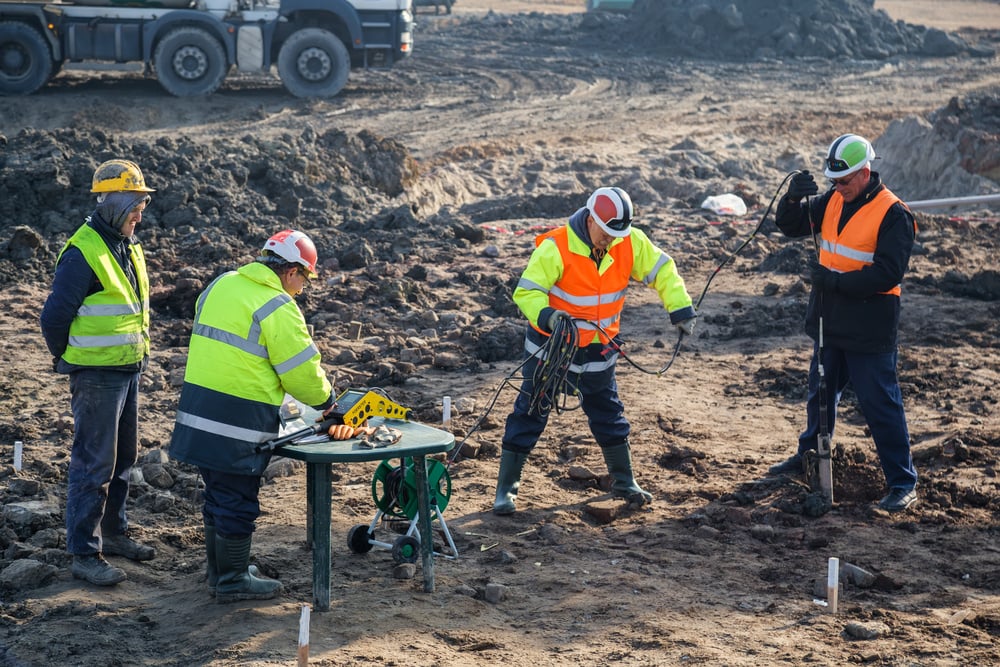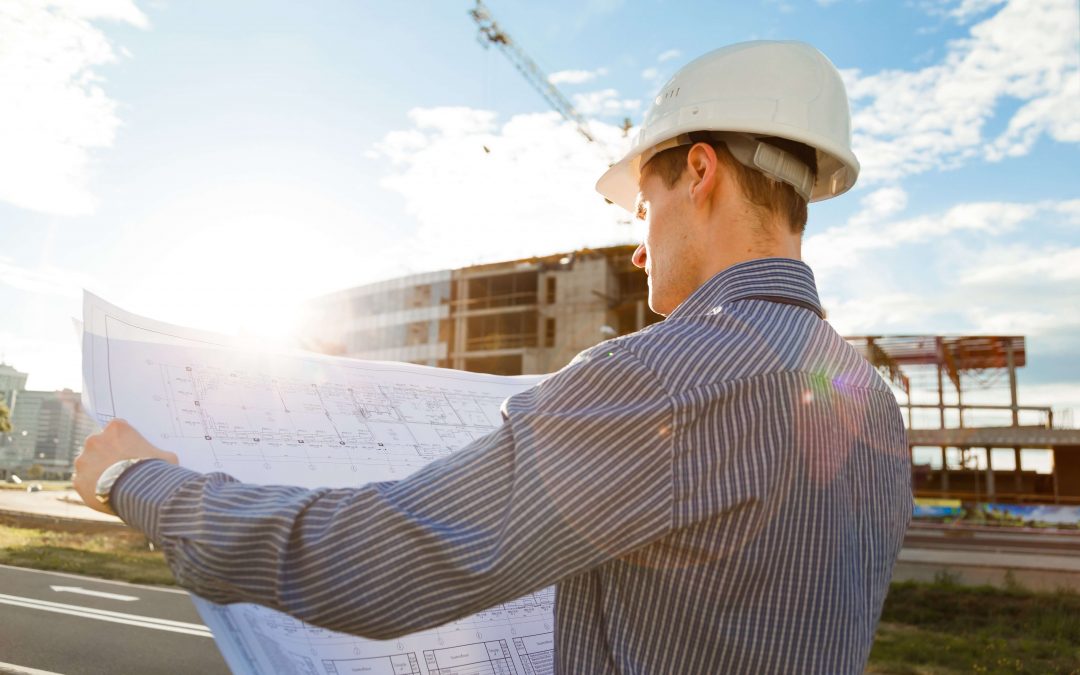Specialized Geotechnical Engineering Solutions - Questions
Specialized Geotechnical Engineering Solutions - Questions
Blog Article
Getting The Specialized Geotechnical Engineering Solutions To Work
Table of ContentsThe Facts About Specialized Geotechnical Engineering Solutions UncoveredUnknown Facts About Specialized Geotechnical Engineering SolutionsExamine This Report on Specialized Geotechnical Engineering SolutionsWhat Does Specialized Geotechnical Engineering Solutions Do?
They perform website examinations, accumulate examples, execute laboratory tests, and evaluate data to assess the suitability of the ground for building jobs. Based on their findings, geotechnical engineers offer suggestions for foundation design, slope security, preserving frameworks, and reduction of geotechnical threats. They team up with various other experts, such as engineers, architectural designers, and building teams, to ensure that geotechnical considerations are incorporated right into the overall project layout and execution.
Foundation Design: Geotechnical engineers play an essential role in designing structures that can securely support the intended structure. They evaluate the soil problems and lots requirements to figure out the ideal structure type, such as shallow foundations (e.g., footings), deep structures (e.g., stacks), or specialized methods like dirt renovation. They think about elements such as settlement limits, bearing capacity, and soil-structure communication to develop optimum structure layouts.
Specialized Geotechnical Engineering Solutions Fundamentals Explained
Below are some sorts of geotechnical designers: Structure Engineer: Foundation designers concentrate on developing and analyzing foundations for structures - Specialized Geotechnical Engineering Solutions. They analyze the soil conditions, lots demands, and website characteristics to establish one of the most proper foundation type and style, such as superficial structures, deep foundations, or specialized techniques like pile foundations
They execute field screening, collect samples, and analyze the accumulated data to define the dirt properties, geologic formations, and groundwater problems at a website. Geotechnical Instrumentation Designer: Geotechnical instrumentation engineers concentrate on surveillance and determining the habits of dirt, rock, and structures. They set up and keep instrumentation systems that keep track of variables such as dirt negotiation, groundwater levels, incline activities, and structural variations to assess efficiency and give early warnings of possible concerns.
In the workplace setting, geotechnical engineers use specialized software application devices to carry out computations, produce styles, and evaluate information. Specialized Geotechnical Engineering Solutions. They prepare reports, testimonial job requirements, communicate with clients and team participants, and coordinate job activities. The workplace setting offers a favorable atmosphere for research, analysis, and cooperation with other specialists involved in the job
They frequently check out job sites to conduct website examinations, analyze geotechnical problems, and visit the site gather information for evaluation. These brows through entail taking a trip to various locations, in some cases in remote or challenging surfaces. Geotechnical engineers may perform dirt sampling, conduct tests, and display building and construction tasks to guarantee that the geotechnical aspects of the task are being applied properly.
The Facts About Specialized Geotechnical Engineering Solutions Revealed
Geotechnical designers also function in specialized geotechnical research laboratories. In these facilities, they perform experiments, carry out examinations on dirt and rock samples, and assess the engineering residential or commercial properties of the products. Geotechnical laboratory engineers function thoroughly in these environments, managing screening equipment, running tools, and recording data. They work together with various other laboratory personnel to make certain accurate and reputable screening outcomes.
Preserving Walls: Producing walls that keep back dirt to stop landslides and supply security on sloped surfaces. Embankments and Earthworks: Creating embankments for roadways, railways, and dams to ensure they remain steady under stress and anxiety. The mining sector relies heavily on geotechnical engineering to make sure the safety and long life of its procedures.
With this in mind, we have designed our program to prepare pupils for success. Geotechnical engineers are involved in all phases of the layout of frameworks, from idea to building. Their work is important in the layout and planning procedure as they evaluate the stability of soil, clay, silt, sand, and original site rock, prior to construction starting.
A Biased View of Specialized Geotechnical Engineering Solutions
This is complied with by a ground examination based upon the searchings for of the workdesk research and involves test matching and sampling to reveal any type of potential problems. Geotechnical engineers work within multidisciplinary teams, supported by intermediate and junior designers along with by CAD technicians. As an elderly geotechnical engineer on a hydro plant task, tasks may consist of taking part in technological reviews (e.g., peer testimonials), tailings dam assessments, dam safety testimonials, and other researches connected to the layout and construction of mine waste facilities.
While some professionals are experts entirely in geotechnics, others might work under titles like design geologist or ground engineer within comparable capabilities. As a geotechnical engineer, you'll require to: construct and preserve connections with clients and various other specialists associated with the site, throughout each projectmaintain security criteria on site be mindful of price ramifications when you make recommendationsstudy geological click resources maps and aerial pictures from a variety of sources and from various time periodsexamine building plans to see just how practical they are based on your understanding of the siteinvestigate threats or geological dangers for the sitesearch for environmentally delicate functions, such as landfill begin to develop valid and interpretive ground modelsplan area investigationsdrill and analyse examples of bedrock, soil, groundwater and added materials manage other specialists on sitesolve technical concerns as they occur, such as unexpected frameworks at drill sitesmonitor conditions during and after construction to make certain structures are steady in the short and lengthy termadd data accumulated on site to your first researchcreate geotechnical calculations, illustrations, and two or three-dimensional computer versions interpreting the datamake referrals about the suggested usage of the site.
There are great deals of opportunities to satisfy brand-new people, as you'll work with a series of professionals at every site. The job can be demanding as you may be accountable for the safety and security of others while on site. There is likewise a high degree of economic responsibility, as the suggestions you make can have severe price implications.

Report this page